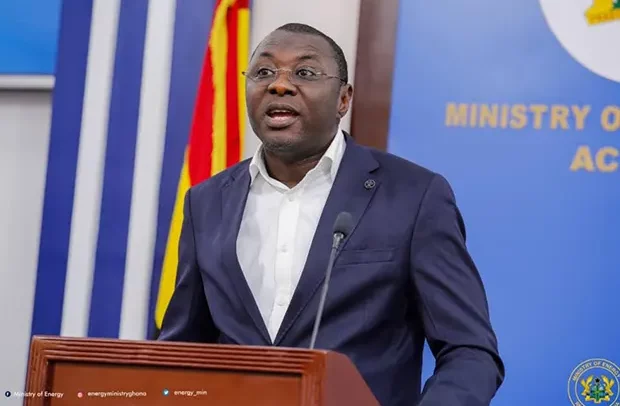
"A country that begs for bread is not worth anybody's respect" I am a government worker who is obliged to pay my taxes? deducted at source? every month. I have to contribute to the development of my nation, but my encounter with a Ghanaian businessman who is into merchandise supplies keeps me wondering why all Ghanaians do not, but only a few people in society like myself, contribute to the country's development.
The nature of his business? the supplies he engages in and how he amasses wealth in a short period of time? has compelled me to enquire from him if, indeed, he pays his taxes. And from the response I had, it was clear that he is either unaware of his obligation as a citizen on tax payment or that he has just decided not to think about taxes and what will come with it, and that he only thinks of making enough money, enjoy his wealth as a Ghanaian and not care about how the good roads on which he drives are constructed, how the hospitals, schools, security and other social interventions and infrastructures he uses come to being.
What are taxes and why taxes?
Taxes are compulsory financial contributions imposed directly or indirectly by a government to raise revenue, levied on the income or property of persons or organizations as per their production cost or sales prices of goods and services.
Taxes go a long way to build a nation through diverse means. It could be used for paying the salaries of government workers, support common resources such as good health and hospital facilities, motorable and accessible road networks and basic educational infrastructure including schools, markets and other needful amenities that help make life comfortable for its populace. Without taxes, it would be difficult, if not impossible, to run a nation and be seen as delivering to ensure the comfort and safety of the citizenry.
Taxes are the only sure way to add and make more revenue to support and enhance development in all sectors of the economy. No tax system is perfect, yet it is a social contract between the people and their government that allows for access to universal health education alongside other important social amenities, without which life would be unbearable and hard to manage.
Ghanaians struggle by the day to travel to the United Kingdom, United States, Germany, China, Japan and other developed Nations at the peril of their lives because they see these places as beautiful, by all standards, and yet have not the slightest idea that these countries have been able to create such environments through an effective tax system that brings in enough revenue which has been used over the years to build the beautiful infrastructure that they admire.
Ghana and taxes
Taxes prevalent in Ghana include direct taxes such as gift taxes, rent taxes, capital gain taxes, dividend tax, natural resource repayment tax , royalties, stamp duty and the vehicle income tax while indirect taxes include the value added tax (VAT), excise duty, communication service tax, export duty, import duty and levies alongside other important tax forms that help to run the economy.
The Ghana Revenue Authority (GRA) which was established by the Ghana Revenue Authority Act, 2009 (Act 791) is the sole tax authority with the core mandate to ensuring maximum compliance with all relevant laws in order to ensure a sustainable revenue stream for government, trade facilitation and a controlled / safe flow of goods across Ghana's borders.
The authority has various functions some of which include the collection of taxes, penalties on taxes due the country with optimum efficiency, promoting tax compliance and education, combating tax fraud and evasion and publishing reports and statistics related to revenue collection, among other important functions.
In Ghana, Civil and Local Government staffs as well as public servants are taxed on their wages and salaries which are automatically deducted at source. The Accountant-General's Department of Ghana is the effective government payer recognized agency in Ghana. The private and informal sector which is dominant in Ghana is not left off the tax net since their contribution to the infrastructural development and social amenities of this nation is paramount and vital. However, their contribution is very abysmal. Unlike the formal sector whose taxes are deducted at source, theirs depends on voluntary compliance and this is where the problem lies.
It is for this reason that GRA recently launched a tax campaign dubbed: #OUR TAXES OUR FUTURE to create awareness especially for those in the informal sector to discharge their civic responsibility as citizens.
Mr Kofi Nti, Acting Commissioner-General, GRA, at the launch of the campaign, disclosed that only 2% of the informal sector is covered on the tax net. This, he said, was not helping in the mobilization of sufficient revenue to aid government to undertake diverse developmental projects for the benefit of the citizenry.
Most Ghanaians are engaged in income earning activities, but only 1.2 million people are registered for tax purposes? and out of this number, 1 million people are in the formal sector, while only about 200,000 are in the informal sector. The result of this situation is that for a long time, the contribution of the informal sector to total tax revenue has remained below 5 per cent creating a huge gap, thereby, in the national revenue stock.
Tax interventions
In view of the lapses in the tax, GRA has taken several steps to rectify taxation problems across the country through stake holder engagements and educational programmes to educate the populace on the need to pay taxes. The recent campaign which was launched by the Minister for Finance, Mr Ken Ofori-Atta. is expected to, aside stakeholder engagements, employ the services of print, radio and TV announcements and discussions, community outreach programmes, town hall meetings, dawn broadcasts, the use of social media extensively to disseminate tax information alongside other publicity activities to help widen the tax net and increase revenue generation for the development of the country.
The Finance Minister, at the launch, appealed to all and sundry to render what is "Caesar's to Caesar" for the development of the Nation. In his words, "Caring about the public purse should not be the sole responsibility of the GRA but all institutions such as the Chartered Institute of Taxation, Institute of Engineers and others on their tax obligations to Ghana."
Mr Ofori-Atta also urged all Ghanaians to challenge non-Ghanaians including Indians, Lebanese and the Chinese who had been making their livelihood here in Ghana to feel obliged to contribute to Ghana's development.
Tax benefits and types
Being tax compliance comes with many benefits aside social amenities and development. As part of the campaign, GRA is calling on everyone to acquire a Taxpayer Identification Number (TIN) that will identify the individual tax payer. By so doing, people who evade taxes would be unable to deal with some very vital institutions such as the Ghana Revenue Authority, the Controller and Accountant-General, Registrar-General's Department, the Registrar of Co-operatives, Lands Commission, Ghana Immigration Service, Passport Office, Driver and Vehicle Licensing Authority, Metropolitan Municipal and District Assemblies, Ministries, Departments and Agencies, and other Important public institutions.
In this case, the non compliance tax public would not be able to clear their goods in the ports, cannot own Ghanaian lands or obtain any tax clearance certificate from the Ghana Revenue Authority and it will also be impossible for such persons to register any business here in Ghana or do business in Ghana legally, file a case in court and receive any form of payment subject to withholding the Income Tax Act, 2015 (Act 896) as well as other important business transactions that are taxable and valued by the state.
Conclusion
Taxes play a crucial role in national development hence the need to ensure that all are encouraged to pay taxes through simple, consistent and clear means to make people understand the tax system. An effective taxing system is the bedrock to a people's development, hence the efforts of the GRA to widen the tax net is commendable and appropriate at the time Ghana seeks to rub shoulders with the world in terms of development.
It will be good for us as a people to build a stronger resilient society and this requires taking our tax issues more seriously to be able to have a social justice system and for equitable distribution of national resources.
The writer is a staff of the Information Services Department.
This email address is being protected from spambots. You need JavaScript enabled to view it.
Read Full Story




















Facebook
Twitter
Pinterest
Instagram
Google+
YouTube
LinkedIn
RSS